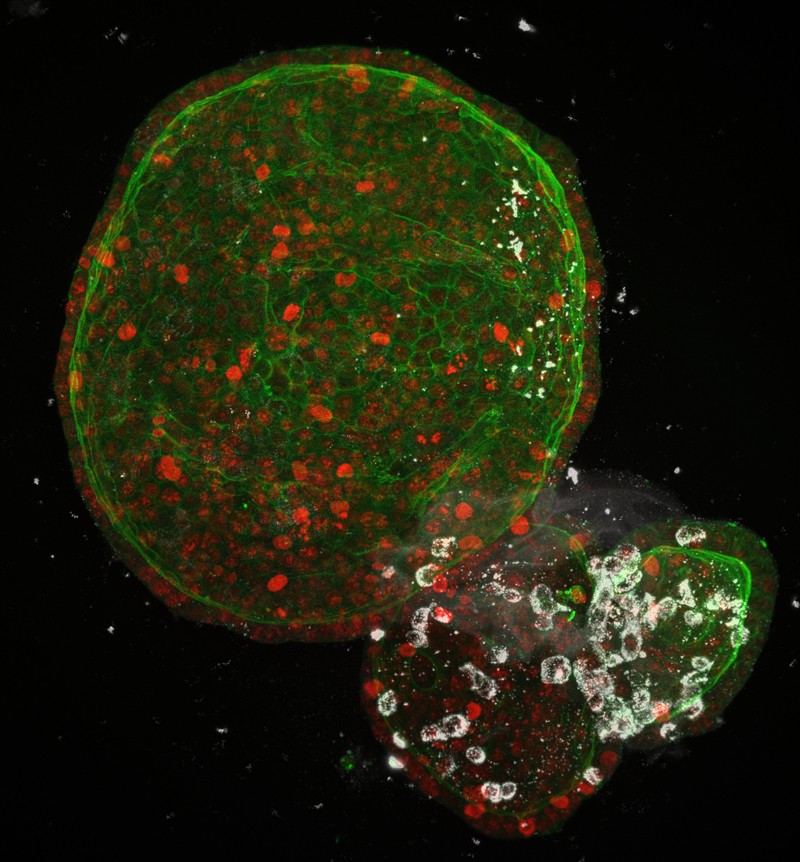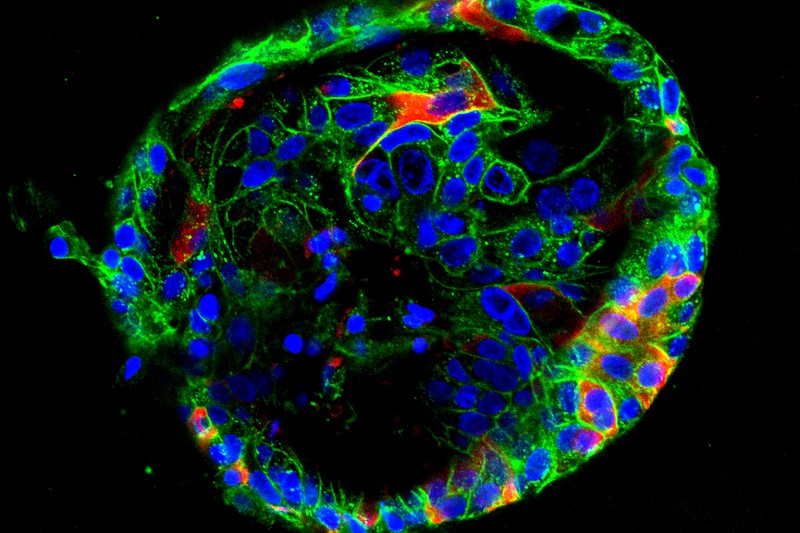每日外闻137
目前有许多研究者实用体外类器官来研究新型冠状病毒的感染,以此来探明病毒是否会直接破坏人体器官,又或者是感染后的继发性并发症导致的器官疾病(即感染病毒的患者以前就有一些基础性疾病,感染病毒后使症状加剧而表现出器官被破坏)。相比于在单一的某种细胞系中做研究,这种类器官的研究的优势在于能比较好的模拟人体内器官的多种细胞和组织的相互作用,而且能在体外保持原始的形状几周的时间。比动物模型更加的便宜,而且还能避免伦理问题。但是其不能模拟人体内多种器官的相互作用,这就意味着,在类器官上的发现还需要到动物模型或者临床上的验证。
Researchers are growing miniature (微型的) organs in the laboratory to study how the new coronavirus ravages(破坏) the body. Studies in these organoids(类器官) are revealing the virus’s versatility(多功能的) at invading organs, from the lungs to the liver, kidneys and gut. Researchers are also experimenting with drugs in these mini tissues to see whether such therapies might be candidates to treat people.
Physicians know from hospitalised patients(住院病人) and autopsies (验尸) that SARS-CoV-2 can have a devastating effect on organs. But it’s unclear whether some of this damage is directly caused by the virus or by secondary complications(并发症) of the infection. Multiple groups are using organoid studies to show where in the body the virus travels, which cells it infects and what damage it does.
“The beauty of organoids is that they resemble the true morphology(形态学) of tissues,” says Thomas Efferth, a cell biologist at Johannes Gutenberg University of Mainz, Germany.
Virologists typically study viruses using cell lines or animal cells cultured in a dish. But these don’t model SARS-CoV-2 infection well because they don’t mimic what happens in the body, say researchers.
Organoids better demonstrate what SARS-CoV-2 does to human tissue, says Núria Montserrat, a stem-cell biologist at the Institute for Bioengineering of Catalonia in Barcelona, Spain. They can be grown to include multiple cell types, and take the shape of the original organ in weeks, says Montserrat. They’re also less expensive than animal models, and avoid the ethical concerns they pose(形成,造成).
But studies of SARS-CoV-2 in organoids have limitations because they do not reflect the crosstalk between organs that happens in the body, which means that findings will still need to be validated in animal models and clinical studies, says Bart Haagmans, a virologist at Erasmus MC in Rotterdam, the Netherlands.
See you tomorrow











